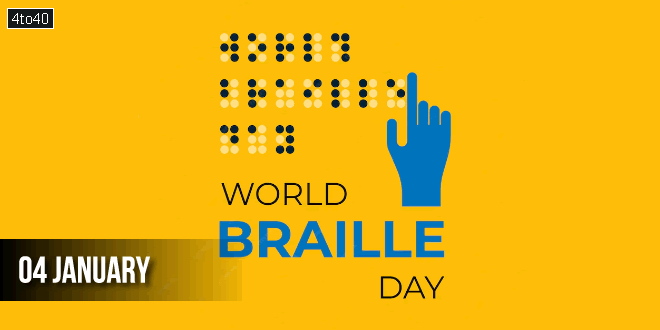World Braille Day 2025: Celebrating Inclusivity, Literacy, and the Legacy of Louis Braille

Every year on January 4th, the world comes together to observe World Braille Day, a day dedicated to honoring the life and legacy of Louis Braille, the inventor of the Braille system. Though World Braille Day 2025 has passed, its significance remains as relevant as ever, reminding us of the ongoing need to advocate for accessibility, inclusivity, and empowerment for individuals who are blind or visually impaired.
The Origins of World Braille Day
World Braille Day was officially recognized by the United Nations (UN) in 2019, aligning its observance with the birthday of Louis Braille, born on January 4, 1809, in Coupvray, France. Louis Braille, who lost his sight at a young age, developed a tactile reading and writing system that allowed visually impaired individuals to independently access literature, education, and information.
The Braille system, based on six raised dots arranged in different patterns, revolutionized the way visually impaired people communicate and interact with the world. This invention laid the foundation for equal opportunities in education and information dissemination, fostering independence and confidence among millions of individuals globally.
Why Is World Braille Day Significant?
For those who are blind or visually impaired, Braille is more than a tactile writing system; it is a lifeline to literacy, empowerment, and equality. Despite advancements in technology, Braille continues to play a critical role in providing access to education, information, and employment.
World Braille Day serves as a powerful reminder of the importance of ensuring that Braille remains accessible in all areas of life, including:
- Education: Ensuring schools have Braille books and resources for blind students.
- Workplaces: Promoting inclusive practices and Braille tools to facilitate employment.
- Public Spaces: Incorporating Braille signage in buildings, transportation, and other public areas.
- Digital Accessibility: Adapting technology to integrate Braille readers and tactile interfaces for visually impaired users.
The Continued Relevance of Braille in the Digital Age
In a world dominated by digital technology, some might question whether Braille has become outdated. On the contrary, Braille remains as relevant as ever, particularly when paired with modern innovations. Devices like Braille e-readers, refreshable Braille displays, and screen readers have made it possible for visually impaired individuals to access digital content in Braille. Moreover, Braille literacy continues to be a cornerstone of education for visually impaired students, enabling them to develop essential reading and writing skills.
How World Braille Day is Celebrated
World Braille Day celebrations often include activities aimed at promoting Braille literacy and raising awareness about the challenges faced by visually impaired individuals. These activities include:
- Braille Learning Sessions: Workshops to teach the Braille alphabet to sighted individuals.
- Community Awareness Campaigns: Sharing information about Braille and its significance through social media, blogs, and events.
- Advocacy Efforts: Encouraging governments and organizations to adopt policies that promote Braille accessibility in schools, workplaces, and public spaces.
- Donations and Support: Contributing Braille books, devices, or financial support to organizations serving the visually impaired community.
As we move forward, let us reaffirm our commitment to supporting Braille literacy and accessibility, ensuring that the transformative power of Braille continues to enrich lives for generations to come.
Source of Image: http://www.4to40.com





